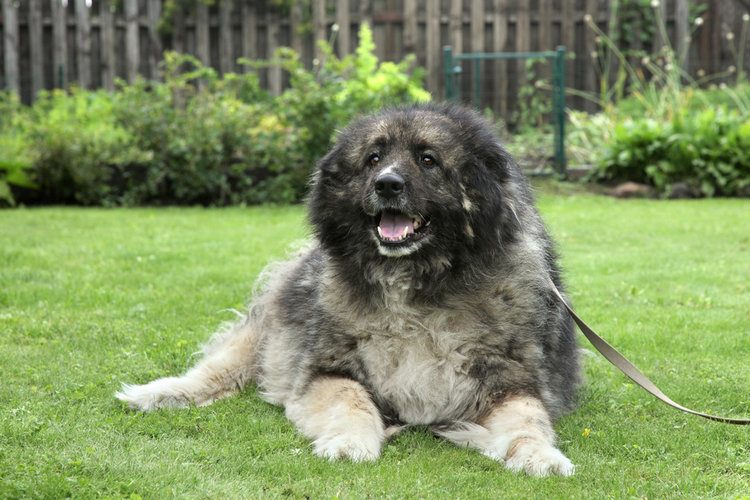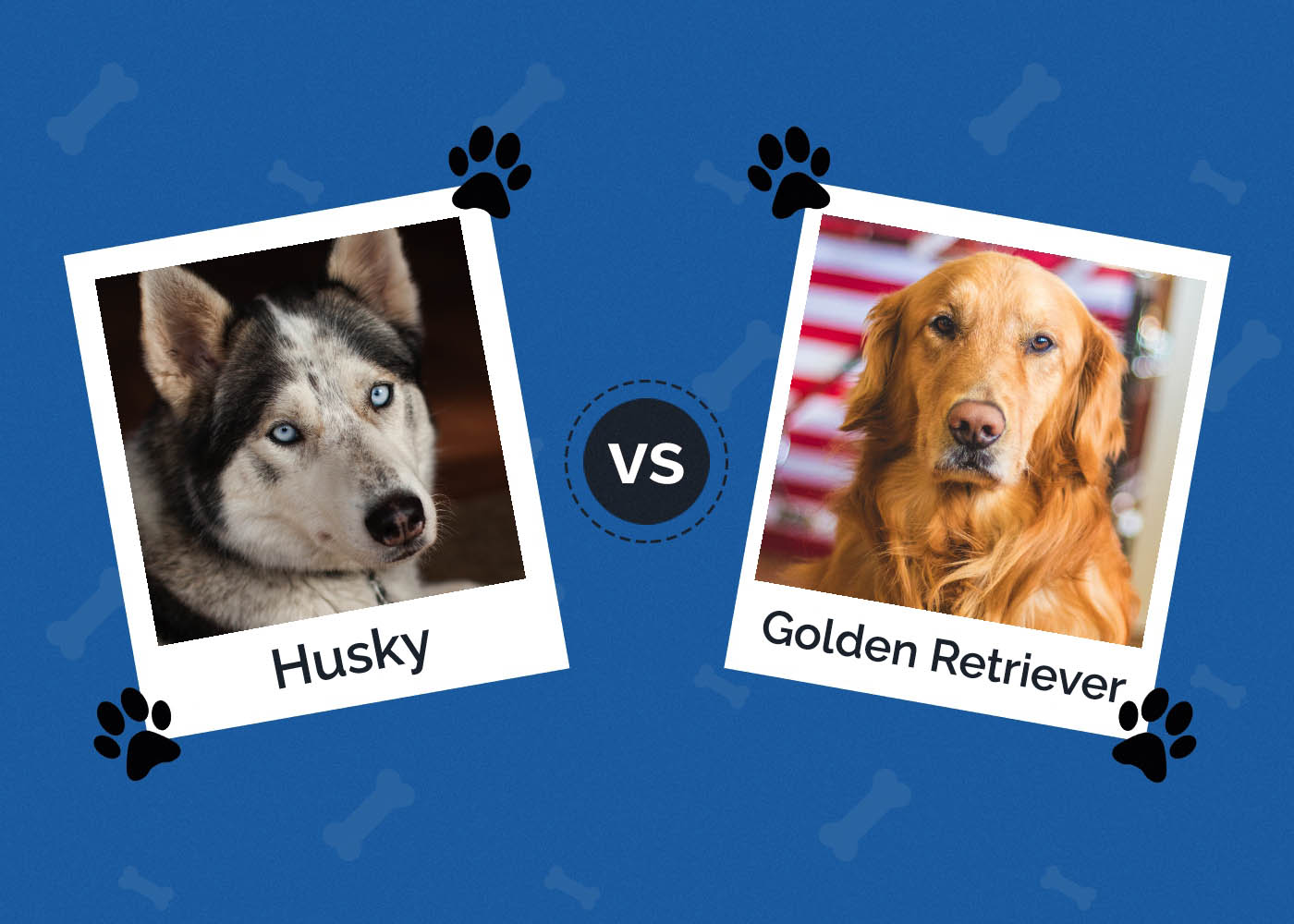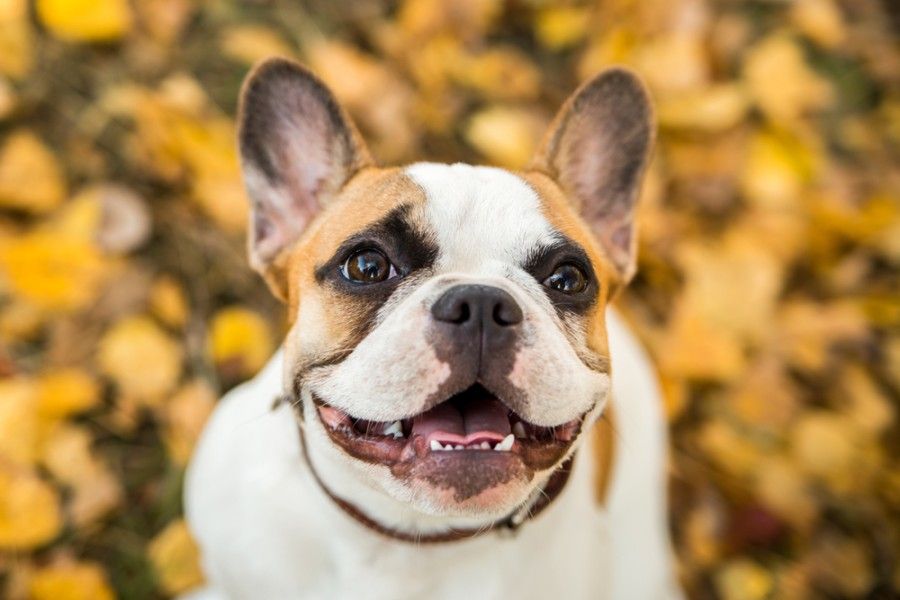Glechon (Bichon Frise & Beagle Mix): Info, Pictures, Characteristics & Facts

Updated on
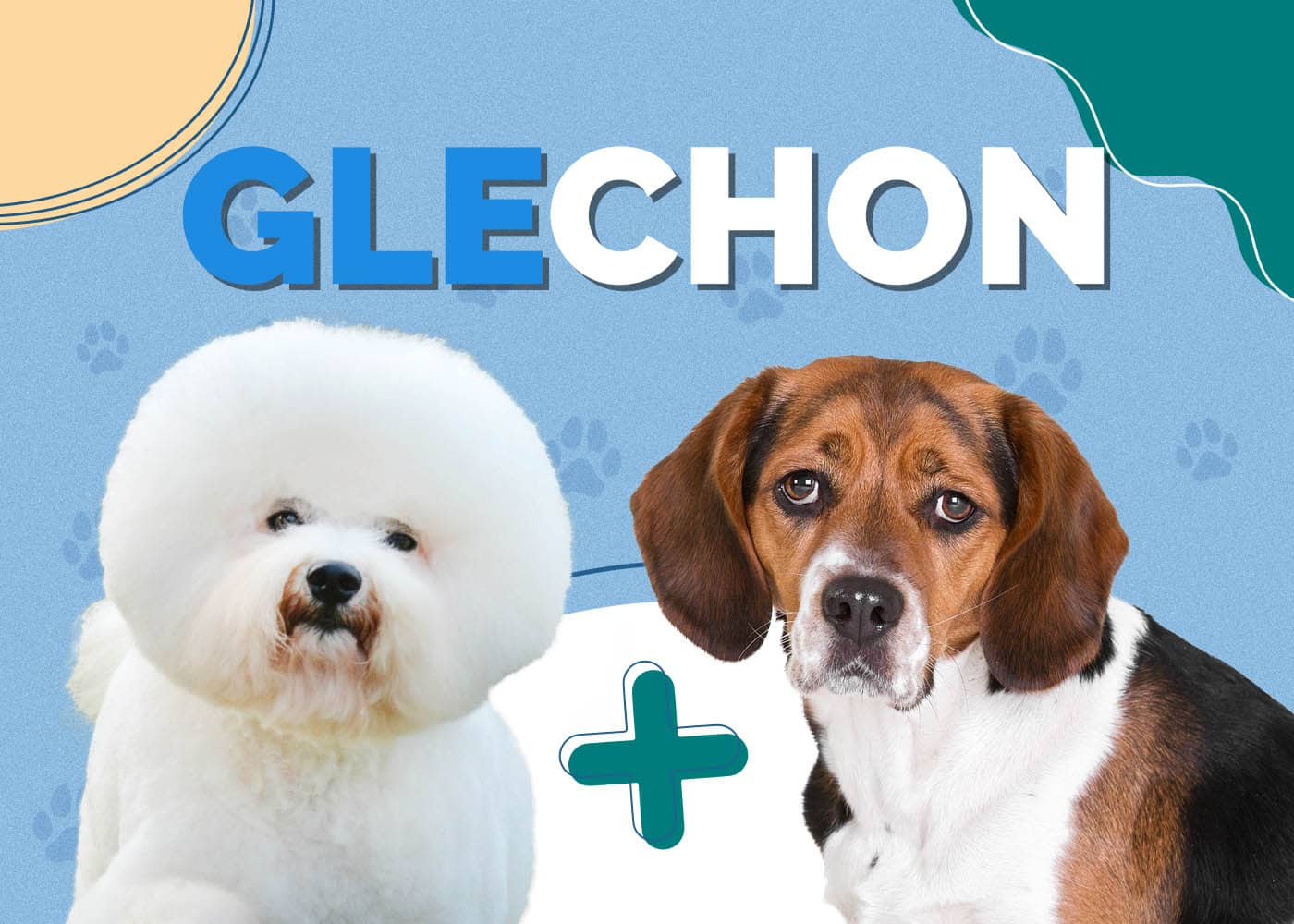
| Height: | 13-16 inches |
| Weight: | 15-35 pounds |
| Lifespan: | 12 to 15 years |
| Colors: | Black, brown, yellow, white, grey |
| Suitable for: | Families, singles, seniors, apartments |
| Temperament: | Gentle, affectionate, playful, friendly, curious, intelligent, loyal, stubborn at times |
The Glechon is a hybrid breed, a cross between the sweet and loving Bichon Frise and the alert and independent Beagle. These dogs are gentle and sweet-natured pooches that love to be around people and have a playful and energetic nature. They are carefree and fun-loving dogs that make great family pets and after a day of playing, and they love nothing more than to cuddle in their owner’s lap. To get to know this pooch a little better, it always helps to take a quick look at their parent breeds.
The Bichon Frise is a cheerful, mischievous dog with an unmistakable fluffy white coat punctuated only by its small black eyes. They resemble a toy more than a dog, although this is somewhat deceiving — they are hardy little dogs that believe it or not, are classified in the non-sporting group by the American Kennel Club (AKC), not the toy group. They are also highly energetic pooches that need a great deal of exercise despite their small size and pampered appearance.
Beagles are small, compact, and energetic dogs of the Hound group with amazing noses — they were originally bred to track and hunt small game. They are outgoing dogs with plenty of love to give and make great family pets, as well as competent working dogs with their powerful noses. They can be a bit stubborn at times, a trait that makes them a challenge to house train.
The Glechon is a hybrid of two wonderful breeds that complement each other well. If we have piqued your interest so far, read more below for a deeper dive into this loving hybrid.
Glechon Puppy
Before bringing home a Glechon puppy, you should know that these hybrids are likely to inherit their Beagle parent’s powerful sense of smell, a trait that can sometimes lead them into trouble. Dogs with such a powerful nose experience the world largely through smell, and they will often unintentionally follow that smell with a determined focus and be largely unaware of their surroundings. For this reason, be sure to pet-proof your home before bringing a puppy home.
Both the Glenchon’s parent breeds are energetic and athletic dogs, so these pooches will require a fair amount of exercise to keep them out of trouble and from getting overweight. They may appear to be cuddly lap dogs but have a great deal of excess energy that needs to be burned off. A good dose of patience is needed with this breed due to their lively nature and often stubborn character. Training can be a challenge, but with time, dedication, and patience, they are usually up to the task.
The Glechon loves to be around people and will suffer from separation anxiety if left alone for long periods. If you are away from home frequently and have no other dogs, the Glechon may not be an ideal choice because they will quickly resort to misbehavior to get your attention and direct their boredom. These are the kind of pooches that need to be close to humans.
If you have the time and patience and are prepared to have a new shadow around, the Glechon is an ideal choice of dog.
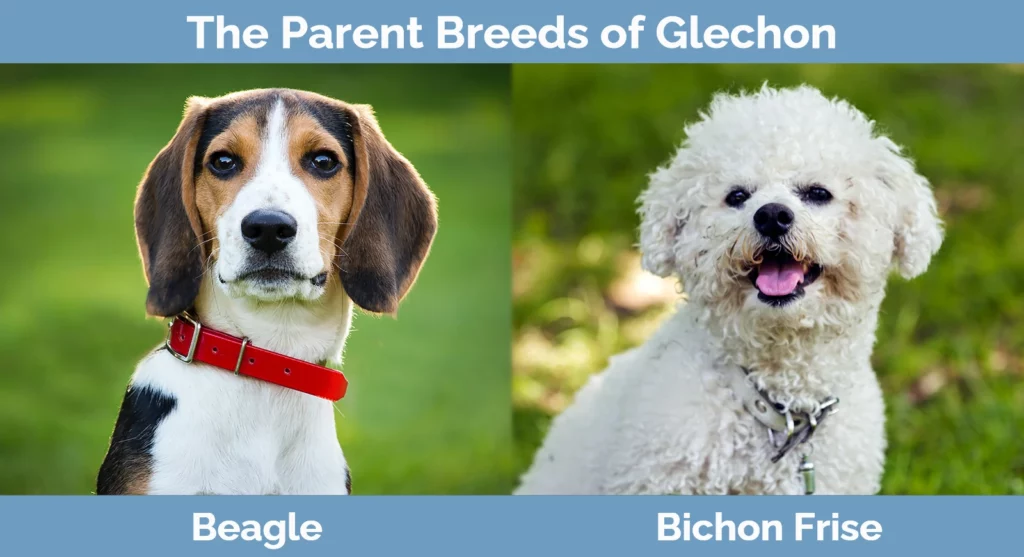
3 Little-Known Facts About the Glechon
1. The Bichon Frise is not from France.
The Bichon Frise has long been associated with France, not least due to its name, and many assume that this is where the breed first originated. Although the Bichon Frise was developed in France into the lap dog that we know and love today, they most likely originated in Spain. They were used as sailing dogs by Spanish sailors and are thought to be descended from other water dogs, like Poodles or Spaniels. Despite the breed’s long history in Europe, it wasn’t until the 1950s that the Bichon Frise made their way to the United States.
2. The Bichon Frise is one of the most hypoallergenic dog breeds.
Although no dog breed is truly 100% hypoallergenic, the Bichon Frise comes pretty close. The Bichon Frise does shed, albeit not much, and can still cause allergic reactions in allergy sufferers, but they are known to shed far less than most other breeds. The regular grooming required with these dogs will also help with allergies, as most of the shedding hair will be caught by brushing.
While Bichons are great for allergy sufferers, they are ironically highly prone to allergies themselves, including allergies from flea bites, mites, dust, and pollen.
3. They are a vocal breed.
The Bichon Frise is generally a quiet dog, but without proper training, these dogs are known to develop the bad habit of continuous yapping at only the smallest of sounds. This can also be avoided by regular exercise but be sure to stop the habit before it’s too late, as it can be a difficult trait to get rid of. Beagles are well-known for their excessive barking and howling and are one of the most vocal breeds around.
Your Glechon will surely inherit this vocal trait, so be sure that they are trained at an early age to bark only when necessary.
Temperament & Intelligence of the Glechon 🧠
The Glechon is a loving and affectionate pooch that adores being close to its owners. These dogs are highly social and are always up for an adventure or play session in the back yard. They are easygoing dogs that are friendly with strangers, great companions for children, and rarely aggressive. They do have a fairly strong prey drive, however, and a healthy dose of “small dog syndrome” that may lead them into getting into fights they cannot finish. They are known for going after other pets like cats, so early socialization is key.
These dogs are highly intelligent and can pick up training and basic commands quickly, but both parents breeds have a strong stubborn streak that can make training a challenge at times and may take up to a year to fully house train. You’ll need a great deal of patience when training a Glechon, but the result will be an obedient, calm, and smart pooch that is well worth the effort.
Are Glechons Good for Families? 🏡
The Glechon is an ideal family pet that is rarely aggressive and great with children. They are sociable dogs that adore being around and interacting with humans, but this trait can also present some challenges. They do not enjoy being alone and will suffer from separation anxiety when left alone for extended periods. They are also protective of their human family, and there seems to be no challenge too big for them.
Do Glechons Get Along With Other Pets? 🐶 😽
The Glechon is a friendly dog that quickly makes friends with other dogs, even dogs they are not familiar with. Smaller pets and cats, however, can present issues. Glechons have a strong prey drive and are known for chasing smaller pets and cats at every opportunity. Early socialization and good training are key to preventing this trait.
Things to Know When Owning a Glechon
Food & Diet Requirements 🦴
The Glechon doesn’t have any special dietary requirements and will do fine on a high-quality kibble. A good place to start is between 1-2 cups a day, split into a minimum of two meals. High-quality dry kibble has the benefit of being convenient, and you can rest easy knowing that it contains all the vital nutrients, vitamins, and minerals that your pooch needs to live a healthy and happy life. Be sure that the food you choose is free from filler ingredients like corn, wheat, and soy, as these are empty calories that have little nutritional value.
These little dogs are highly food motivated, so can easily become overweight. Avoid freely feeding them or giving them too many treats or table scraps (no matter how adorable their pleading expression is), as this will be likely to cause rapid weight gain.
We recommend supplementing their diet with lean meats and organ meats occasionally, as they will love the variety and benefit from the essential fats and amino acids that meat provides. These dogs usually have a smooth, medium-length coat that will need adequate omega-3 essential fatty acids. This is obtained in abundance by flax seeds and fish, and if you are concerned whether they are getting adequate amounts, you may consider supplementing with fish oils.
As with any dog, make sure they have constant access to clean, fresh water.
Glechon Exercise 🐕
The Glechon is a high-energy pup that needs a fair amount of exercise to stay happy and out of mischief. These dogs are prone to excessive barking, digging, and chewing when they get bored, so daily exercise and interaction is essential. They are small dogs, though, and don’t need much to get tired out — a minimum of 1-2 hours a day, split into two sessions, is perfectly adequate. We recommend a casual walk around the neighborhood followed by an interactive play session like fetch, and then later in the day, do a more intensive run or jog, followed by a training session. A tired dog is a well-behaved dog, and they are most responsive to training after a session of exercise. Just be careful not to tire them out too much!
The Glechon is a highly playful breed and will enjoy regular games and play sessions. They have powerful noses, and this can be channeled into a variety of different games and activities. They are experts at sniffing out smells, so hide and seek games are a great form of play and bonding and can even be used successfully in training.
Glechon Training 🦮
Both the Bichon Frise and Beagle have a well-known stubborn streak, so you need to begin training your Glechon from the day you bring them home. House training can be especially difficult with this breed, and you’ll need to dedicate time every day to patiently training these pooches. A great place to begin is to get them to sit before any major activity you engage with them in. Before meals, walks, play sessions, and training sessions, try and get them to sit and stay. These two commands are the basis of good training, and they can be successfully learned early on.
We recommend reward-based training, as these dogs are highly food-motivated and eager to please their owners, traits that are well-suited to this form of training. The premise is simple: Your dog is rewarded for good behavior with praise and/or treats, and bad behavior is simply ignored or distracted from. For example, if you find your dog chewing something that they shouldn’t be, replace it with a chew toy rather than scolding or harshly reprimanding them. Glechons are sensitive animals that will not respond well to harsh reprimands, and this will only serve to erode trust and make training take far longer.
Training is not only essential for your dog’s mental and physical health (and yours!) but is also a great way to form a strong bond of trust with your pooch.
Glechon Grooming ✂️
The coat of your Glechon can be short, medium-length, or even long, so grooming will depend on which type of coat your Glechon inherits. Shorter coats will require minimal brushing — once a week should be fine, but longer coats will require daily brushing to prevent matting and knotting. No matter the coat, the Glechon will usually be a low-shedding dog.
Bathing should only occur if your dog gets exceptionally muddy, and even then, we recommend using only clean water or dog-specific shampoos or soaps to preserve their coat’s natural oils. One point to pay careful attention to is their ears: If your Glechon inherits the long, droopy ears of the Beagle, you’ll need to perform regular checks in and around the ear canal. Because of the restricted airflow, their ears are fairly prone to infections and should be kept clean and dry at all times.
As with all dogs, they’ll need regular teeth brushing to prevent dental issues and occasional nail trimming, depending on their activity levels.
Health and Conditions ❤️
The Glechon is a relatively healthy breed that benefits from hybrid vigor, the associated health benefits gained from crossbreeds. The most prevalent concern with these dogs is obesity, so you’ll need to pay careful attention to their diet and make sure they get sufficient exercise. Other than that, there are a few other health concerns that their parent breeds suffer from than may be passed down to your Glechon.
The Bichon Frise is fairly prone to allergies, and some are known to have high sensitivity to fleas and pollen. Beagles can often suffer from hip and elbow dysplasia and intervertebral disc disease, so this may affect your Glechon too.
Other concerns to look out for are congenital heart defects, patellar luxation, hypothyroidism, and ear infections.
- Obesity
- Cataracts
- Progressive
- Retinal atrophy
- Epilepsy
- Allergies
- Cancer
- Bloat
- Hip and elbow dysplasia
- Congenital heart defect
- Patellar luxation
- Hypothyroidism
- Intervertebral disc disease
Male vs. Female
Both male and female Glechons are laidback, even-tempered dogs, but there are a few small differences between the two to take into consideration before bringing your puppy home. Remember that all dogs are individuals that have unique temperaments, regardless of their gender. Even two dogs of the same sex and from the same litter can vary drastically in character.
Males tend to be more attached to their owners, whereas females are generally more independent. That being said, females are still social animals that love to be with their owners. Males, like most dog breeds, are generally taller and heavier, although the difference is not big enough to be concerned with. Females tend to be moodier too, whereas males are always up for a cuddle or play session. Spaying your female will mostly mitigate this and help avoid unwanted pregnancies. Neutering males will stop them from marking their territory and from wandering off in search of females.
The last point to consider is the dogs you already own. If your Glechon will be your only dog, the choice between male and female is purely personal. If you already own a female, you may consider a male, or vice versa, as dogs of the same sex can sometimes have territorial issues.
Final Thoughts: Glechon
The Glechon is a great family pet that will provide you hours of fun and entertainment, followed by adorable cuddles. While they can be stubborn at times, good training and socialization with a good dose of patience are enough to overcome this, and the rewards will be well worth it. The same goes for their strong prey drive; they can easily be socialized to get along with other pets and cats. They are highly adaptable dogs that do well in almost any living arrangement, provided that you can keep their barking at bay!
Overall, the Glechon is a wonderful family dog that is great with children and a great choice for first-time dog owners.
See also:
Featured Image: Left – Bichon Frise (Carlos Amarillo, Shutterstock), Right – Beagle (825545, Pixabay)





